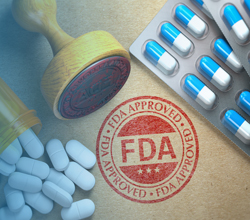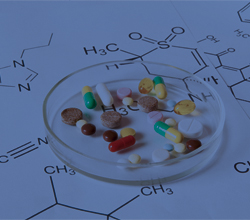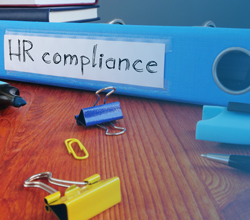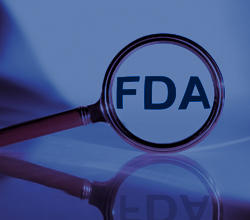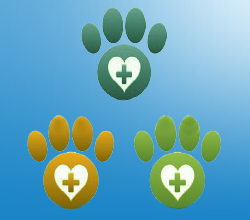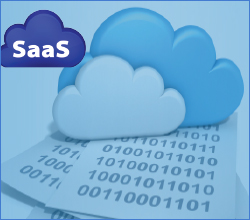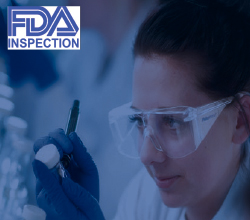
Sterile Filtration of Pharmaceutical Products - Validation and Regulatory Requirements
 Roger Cowan
Roger Cowan
 60 Min
60 Min
Product Id: 703727
It is important that the sterile filtration process is fully understood and properly validated for your particular application. The process requirements and validation needs differ based on the filtration requirement. This webinar will offer attendees a comprehensive understanding of the same while emphasizing the different types of sterilizing filtration available and their application to your particular system. For instance, the application of sterile filtration to use-point compressed air will be discussed in detail.

CMO Supplier Quality Agreements - How to Comply with New FDA and EU Guidelines for Contract Drug Manufacturers
 Roger Cowan
Roger Cowan
 60 min
60 min
Product Id: 703476
This webinar will include a detailed discussion of Contract Manufacturing Organizations (CMO) Quality Agreement topics such as change control, documentation, facilities and equipment, lab controls, sub-contracting, etc. Attendees will learn how to comply with new FDA and EU guidelines for contract drug manufacturers.

Annual Current Good Manufacturing Practices (cGMP) Training
 Kelly Thomas
Kelly Thomas
 60 Mins
60 Mins
Product Id: 705422
This webinar provides a basic understanding and fundamental principles of Current Good Manufacturing Practices and will fulfill the requirement of personnel involved in cGMP must have documented training of current Good Manufacturing Practices. This session will focus on the FDC Act and 21 CFR federal regulations as applied to cGMP.

How to Prepare a Standard Operating Procedure (SOP)?
 Dr. Afsaneh Motamed Khorasani
Dr. Afsaneh Motamed Khorasani
 60 Min
60 Min
Product Id: 705131
This webinar will detail a step-by-step procedure on how to write a practical, effective and compliant Standard Operating Procedures (SOPs), review and revise SOPs and maintain compliance over the course of the SOP life-time.

How to Implement the FDA SUPAC Guidance
 Michael Levin
Michael Levin
 60 Min
60 Min
Product Id: 704312
This webinar training will cover various topics on Scale-Up and Post-Approval Changes (SUPAC). Participants will learn how to properly scale-up or scale-down pharmaceutical batch process and learn the standard set of documentation to successfully support post-approval changes.

Good Laboratory Practices (GLPs) - Comparing and Contrasting with Good Manufacturing Practices (GMPs)
 Joy McElroy
Joy McElroy
 120 Min
120 Min
Product Id: 704086
The objective of this webinar is to compare and contrast between Good Laboratory Practices and Good Manufacturing practices.

Complaint Handling Requirements (US); Interrelationship with CAPA, Change Control, Adverse Event Reporting, Recalls and Life Cycle Process Activities
 Vanessa Lopez
Vanessa Lopez
 90 Min
90 Min
Product Id: 704758
This training program will provide the regulatory requirements (US) for complaint handling in the medical device and pharmaceutical industries. The course will touch on complaint sources, and details will be furnished on the interrelationships regarding complaint handling/change control/adverse event reporting/and recalls. The course will also include timeline requirements associated to adverse event reporting, which reporting formats to use, when to recall and types of recalls.

Validation of HPLC/UPLC Methodologies
 John Fetzer
John Fetzer
 60 Min
60 Min
Product Id: 705291
This training program will cover in detail the key elements of HPLC and UPLC method validation to ensure compliance with FDA GLP and ISO 17025 requirements.

Sterilization of Pharmaceutical Products and Medical Devices
 Carl Patterson
Carl Patterson
 90 Min
90 Min
Product Id: 705310
This webinar will discuss in detail the methods of sterilization to be used on medical devices and pharmaceutical products including advantages and disadvantages of each method. Also attendees will understand the regulations pertaining to sterilization of products that will help to decide with method to use for their product. Validation of each sterilization method will be discussed and how best to prove to a regulatory body the products being treated are considered sterile.

Process Capability Analysis, and What to Do if it's Not a Bell Curve
 William Levinson
William Levinson
 60 Min
60 Min
Product Id: 705157
This process capability analysis webinar will discuss the relationship between variation and accuracy, and process yield, short term versus long term variation, non-normal distributions and how to perform a process capability study.

Understanding and Implementing a Technology Transfer Process
 Steven Laurenz
Steven Laurenz
 60 Min
60 Min
Product Id: 705031
This webinar will discuss the steps to guide the technology transfer for the successful implementation, ensures that products of the highest quality are delivered to the patients along with meeting the business demands of the company.

Understanding and Implementing a Quality by Design (QbD) Program
 Steven Laurenz
Steven Laurenz
 60 Min
60 Min
Product Id: 705001
This webinar will help you understand Quality by Design (QbD) principles used in pharmaceutical product manufacturing, outline the key steps to implement a QbD program and discuss the tools used to implement a QbD approach.

Automating Assays for Clinical Diagnostics
 Todd Graham
Todd Graham
 60 Min
60 Min
Product Id: 703268
This webinar on automating laboratory assays will teach you how to translate an assay that is performed manually to one that is fully automated, with high quality and with proper validation and quality assurance for regulatory purposes.

Technical Writing for Medical Products: SOPs, Investigations and Change Records
 Regina Fullin
Regina Fullin
 60 Min
60 Min
Product Id: 704304
In this training program, attendees will learn quick formatting tips that will make writing more readable and learn how to use formatting tools in a way to maximize the impact of their writing in an electronic system.

Pharmacokinetics/Biopharmaceutics for Chemists/Analysts
 Saeed Qureshi
Saeed Qureshi
 120 Min
120 Min
Product Id: 705271
This training program will focus on defining and explaining numerous concepts and terminologies in a simple language as related to the safety, efficacy and quality assessment of pharmaceutical products for human use. It will also describe the necessity of understanding the basic physiological concepts pertinent to drug actions, product developments and evaluations.

ASTM 2500: Lessons Learned Through a Decade of Implementation
 Kelly Thomas
Kelly Thomas
 90 Min
90 Min
Product Id: 705911
This validation training program will discuss regulatory requirements from the FDA, EU and ICH perspective, review all the detailed guidance on the concepts found in ASTM E2500 to help industry professionals understand how to implement a validation program based on the ASTM 2500 Approach.

Drafting a Software Verification and Validation Report Package and Protocol - The 11 Must-have Documents
 John E Lincoln
John E Lincoln
 90 Min
90 Min
Product Id: 704848
A tougher U.S. FDA expects a company to maintain certain documents in equipment, process and product software V&V. These documentation requirements can assist in a 21 CFR Part 11 CGMP records / signature V&V as well. This training program will provide valuable assistance to all regulated companies in evaluating their existing or anticipated software V&V activities and documentation requirements, especially in light of the changes in the FDA's stance vis a vis industry compliance, past problems, and the growing cloud environment. It will help attendees understand and recognize the most common software V&V failings and their fixes. The webinar will allow attendees to develop and use a repeatable software V&V template for all software validation projects.

Stability Programs for Leachable Impurities
 Wayland Rushing
Wayland Rushing
 60 Min
60 Min
Product Id: 704685
This training program will closely examine what are extractables and leachables. It will focus on how to design and implement leachable stability programs, including the requirements for leachable stability programs, developing and validating methods for use in leachable stability programs, and drug product impurities vs. leachable impurities.

Data Integrity in the Pharmaceutical Laboratory: Practical Steps to Identify and Avoid Data Integrity Issues
 Gregory Martin
Gregory Martin
 90 Min
90 Min
Product Id: 705347
This webinar will discuss in detail the fundamentals of data integrity including the FDA guidance document. It will teach attendees practical steps to identify and avoid data integrity issues in pharmaceutical laboratory.

Extractables and Leachables in Early Phase Development
 Wayland Rushing
Wayland Rushing
 60 Min
60 Min
Product Id: 704517
This training program will offer insight into where extractables and leachables come from. Attendees will learn the regulatory expectations and trends for extractables and leachables in early phase development and learn which products may require E&L data in early phases. The program will also focus on how to design programs to meet the needs of early phase development – i.e. phase appropriate E&L programs.

